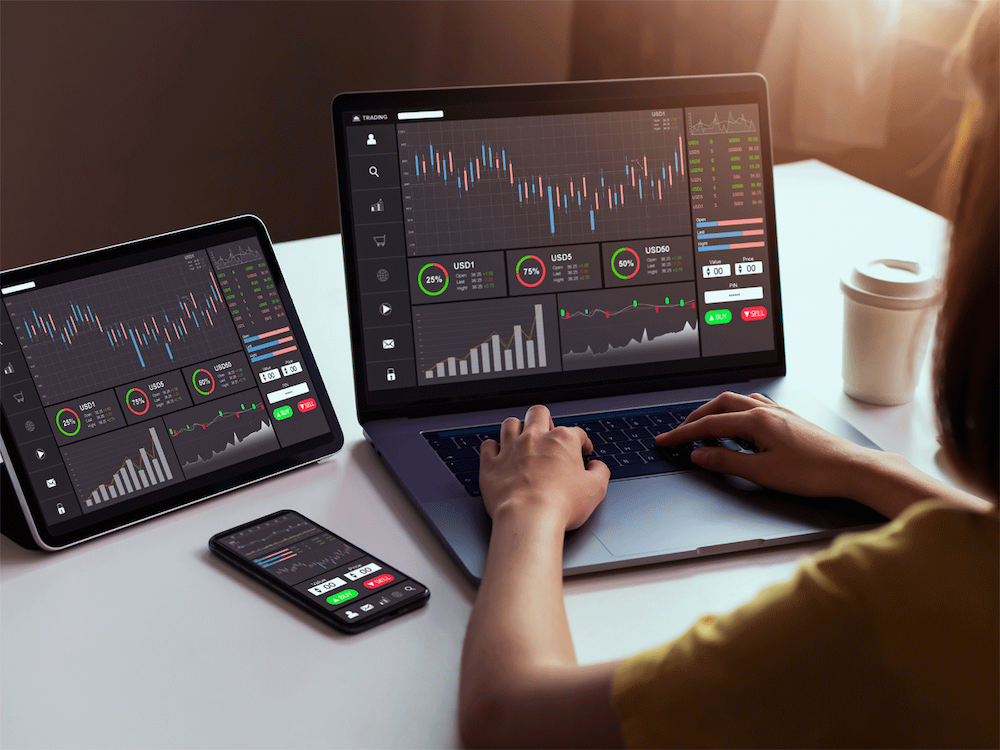In the stock market, commodities are bought and sold during the day. Unlike stocks, they are more volatile. However, they can be a great way to protect your portfolio from inflation. While commodity trading is risky, the rewards can be high. If you’re an experienced trader, you can earn huge amounts of money by selling or buying a commodity. Thus, if you want to know more about commodity trading then here’s what we have got for you!
Commodity Stocks
Investing in commodity stocks is one of the most popular investment methods today. These stocks invest in raw materials, such as grain, silver and gold. These are not differentiated by the producer and are, therefore, a safe haven for investors. For example, if you buy orange juice stock, you are not purchasing oranges that have gone through a variety of different processes. Rather, you’re buying a product that is sold in its most basic form.
The price of a commodity depends on supply and demand. This is the main reason why investing in commodities is such a good choice for speculators. In the short term, the price of a commodity can rise or fall drastically. When prices spike, suppliers increase production in order to get the high profits, but eventually prices will fall to normal levels. In a commodity industry, companies are price-takers. That is, they buy and sell commodities for the lowest cost possible. As long as the market is open, these companies are in business.
There are a number of risks involved in commodity stocks. Since commodity prices fluctuate frequently, you should be aware of these risks. You should not invest your money in individual stocks; instead, invest in a broad basket of stocks. You can get the best results by focusing on large, well-known companies in the industry. It’s best to understand the company and its industry thoroughly before investing your money. It will help you make the right choice.
Commodities ETFs Mutual Funds and ETNs
A commodity ETF is an investment that holds a particular commodity. These are typically a type of mutual fund that tracks a particular asset. These funds can be purchased from a broker or online. They are not suitable for buy-and-hold strategies, but they can provide investors with short-term exposure to the energy industry. While these ETFs may seem like a good option, they should be carefully analyzed before being traded.
See >> How To Open An Online Trading Account In Kenya
Commodities ETFs are gaining in popularity among investors as a good way to diversify the scope of commodity trading. Most of these funds track a commodity index, but this index does not necessarily track a specific commodity. This is because commodities often rise in value when stocks and bonds decrease in value. This means that you can add commodities to your portfolio as a way to protect against inflation.
Commodities ETNs are a good choice if you want to invest in commodities. Compared to other investment options, they offer low risk and low-cost diversification. They do not require you to have a detailed understanding of the underlying commodity. Furthermore, these funds do not have to be diversified, so you can make more money from them than if you invested in one commodity.
The difference between commodity trading and stock trading
The major difference between stock and commodity trading is what’s being sold. While purchasing a stock involves owning a part of a company, trading commodities involves buying goods before they are available. In the case of commodities trading, the buyer agrees to buy many units of a specific good at a certain price and delivery will take place later. These two types of trade are similar in their risks and rewards, but the differences are not as pronounced as one might think.
Read >> Forex Trading Tools For Advanced Traders
In both cases, buyers and sellers try to lock in a good price in advance. They do this because they want to avoid price rises or declines. They also do this because hedging is a common practice in commodity trading. If you buy oil for $50 in advance, you’ll get a great deal later on if the price goes up. In both cases, investors may be speculating and gaining profit.
While stocks have a longer time frame, commodities tend to move quickly. Therefore, the risk of loss in commodities is higher. However, the high risk associated with commodities makes it an attractive alternative for investors. In addition, traders are often more likely to earn larger profits when investing in stocks. This is a very good reason for studying the difference between commodity and stock trading before you invest.


![Emile Nguza Arao is the Executive Director at the East African Community's Civil Aviation Safety and Security Oversight Agency (CASSOA). [Photo/ @MaudhuiHouse]](https://businesstoday.co.ke/wp-content/uploads/2022/03/FNezax7XIAcuXJj-150x150.jpg)










Leave a comment